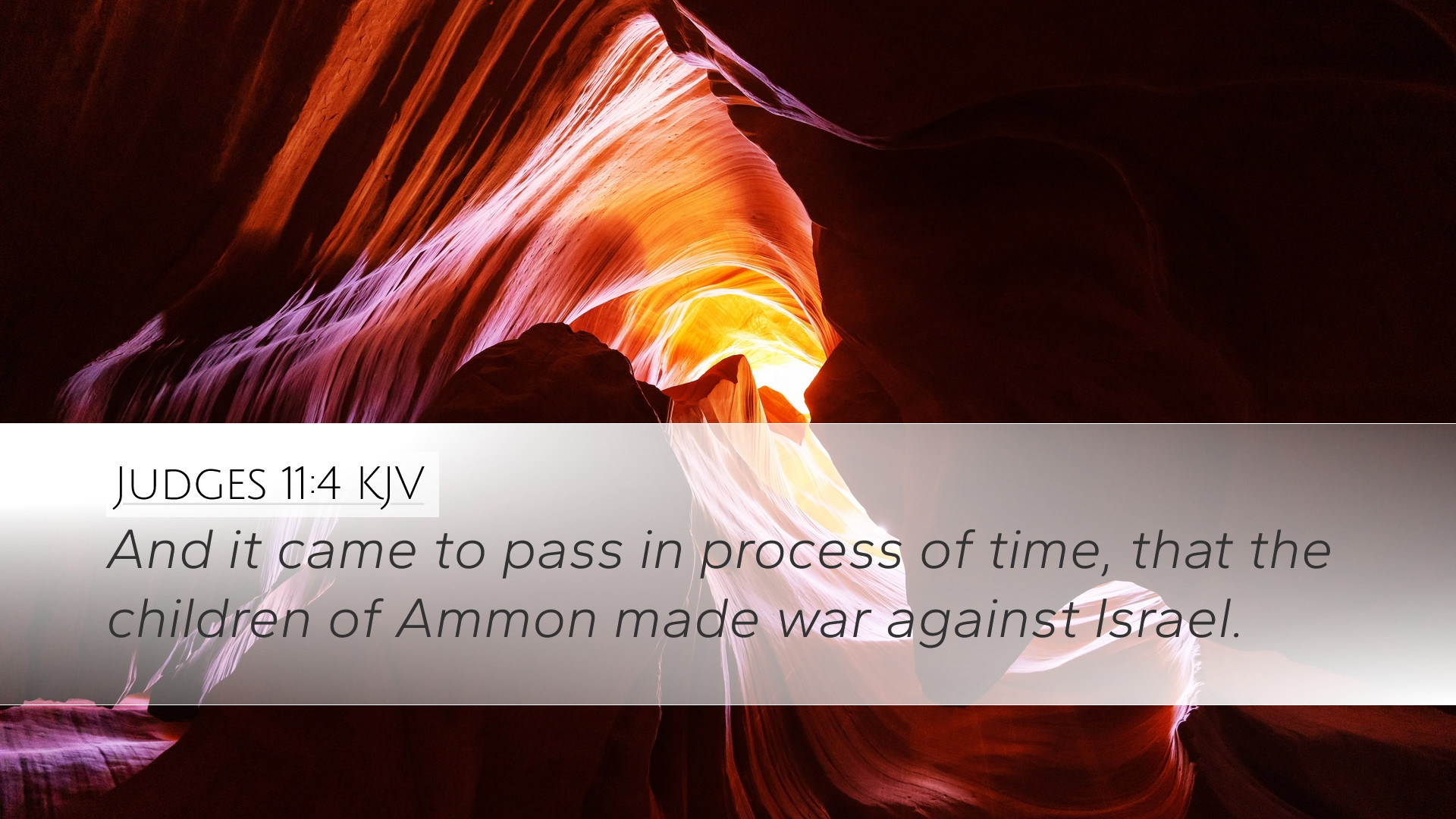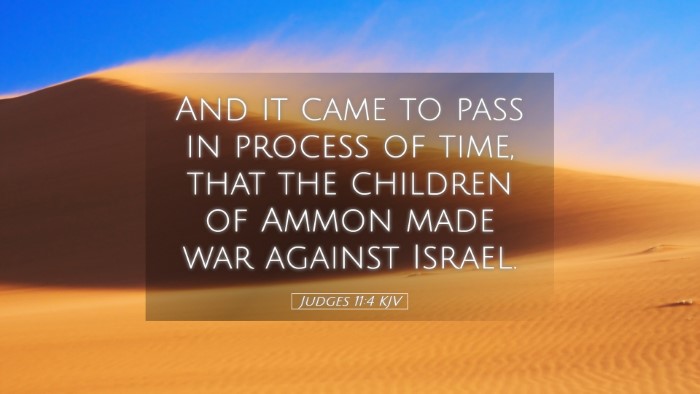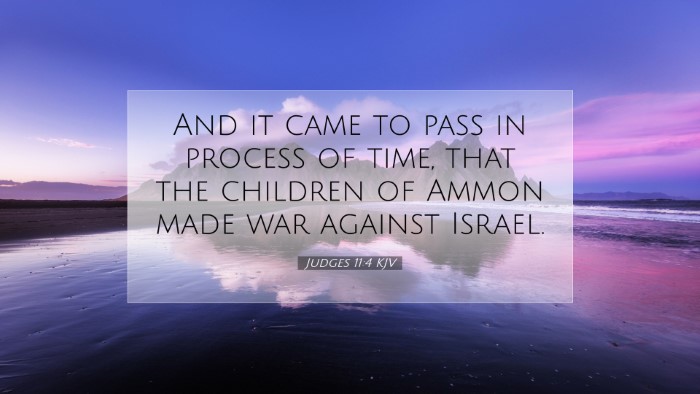Bible Commentary on Judges 11:4
Text of Judges 11:4 (KJV): “And it came to pass in process of time, that the children of Ammon made war against Israel.”
Introduction
The Book of Judges narrates a tumultuous period in Israel's history, characterized by cycles of apostasy, oppression, crying out to God, and deliverance through leaders. Judges 11:4 marks a pivotal moment as it introduces the conflict between the Ammonites and the Israelites, setting the stage for the emergence of Jephthah, a reluctant hero who will lead Israel to victory.
Contextual Analysis
This verse serves as a transition, indicating that a significant time has elapsed since the previous events chronicled in the text. The phrase "in process of time" indicates the passage of time during which the social and political landscapes evolved, leading to the renewed hostility from the Ammonites.
Albert Barnes highlights that the children of Ammon had continually been a thorn in Israel's side, taking advantage of Israel's moral and spiritual decline. The conflict thus reflects the consequences of Israel's departure from covenant faithfulness, a theme pervasive throughout Judges.
Theological Implications
This verse can be seen as indicative of the larger theological truths regarding sin and its ramifications. The Ammonite aggression symbolizes the external threats that arise from Israel's internal failures. Matthew Henry notes that wars often follow disobedience to God’s commands, as seen during the time of the Judges.
The conflict reflects not just a physical battle, but also a spiritual one, where the Israelites are challenged to reaffirm their trust in God amid adversity. This can serve as a rich source of reflection for pastors and theologians contemplating the nature of spiritual warfare in contemporary contexts.
Character Study: Jephthah’s Leadership
The subsequent chapters reveal the character of Jephthah, who rises from his outcast status to become a leader. Adam Clarke emphasizes Jephthah’s initial rejection by his family and community, which morphs into a narrative of redemption, showcasing God’s ability to use the marginalized and overlooked. Jephthah ultimately embodies the complexities of leadership, navigating the tensions between societal rejection and divine calling.
This multifaceted portrayal provides fertile ground for discussions on leadership in the local church, particularly in contexts of diversity and inclusion.
Historical Background of the Ammonites
The Ammonites, as outlined in various public domain commentaries, were descendants of Lot, making them relatives of the Israelites. However, their hostility was rooted in deep-seated animosities stemming from historical grievances. Matthew Henry elaborates on how this familial connection complicates the conflict, indicating that the strife is not simply between enemies but also within the broader tapestry of shared lineage.
The Ammonite oppression serves as a reminder of the fragility of human relationships and the devastating impact of sin on communal life.
Lessons for Modern Believers
Judges 11:4 encourages modern believers to reflect on their own conflictual relationships and the spiritual battles they face. Key insights include:
- Understanding Conflict: Conflict often arises from unresolved sin and can serve as a corrective call to return to God.
- God’s Sovereignty: Despite the hardships, God’s sovereignty shines through, providing hope through potential deliverance.
- Leadership from the Margins: True leaders may emerge from unexpected places, urging the church to remain open to diverse voices and experiences.
Conclusion
In summary, Judges 11:4 encapsulates the larger themes of human conflict, divine sovereignty, and leadership within the context of Israel's narrative. By engaging with public domain commentaries, pastors, students, and scholars can derive profound lessons on faithfulness, communal responsibility, and the sovereign hand of God orchestrating history for His purposes.


